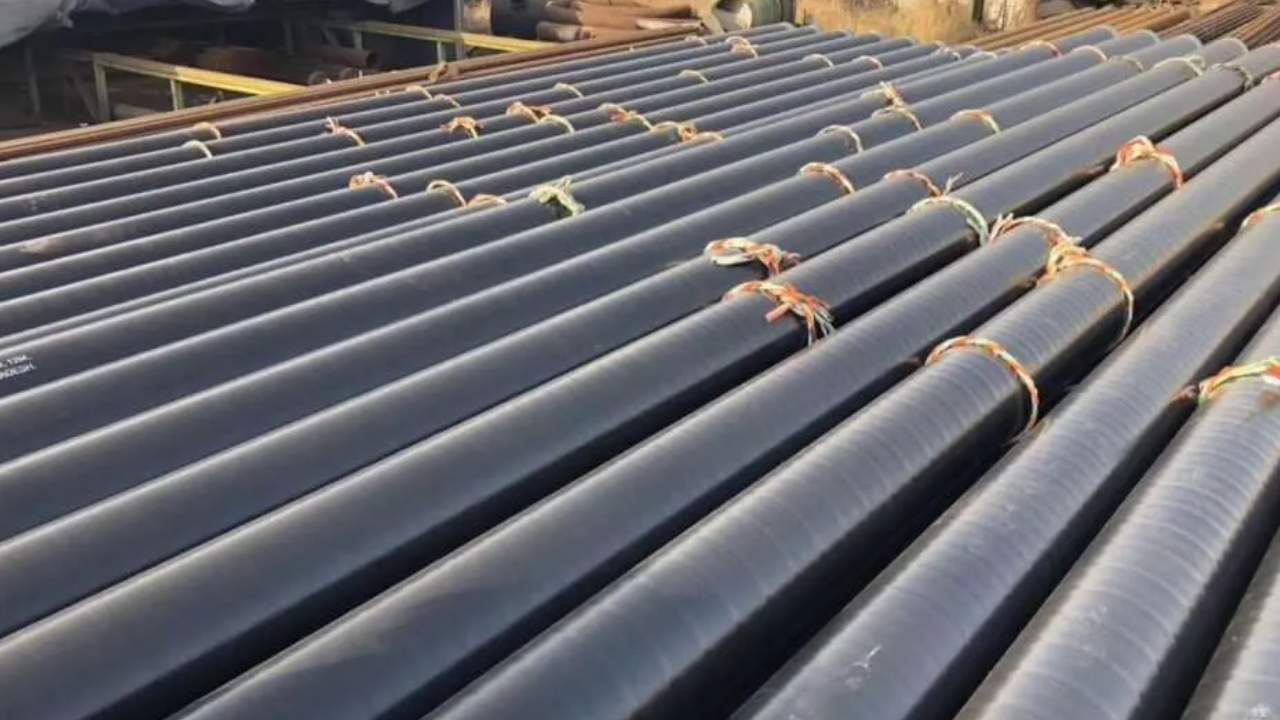Grade B API 5L steel pipes are widely used in various industries, particularly in the oil and gas sector, for moving liquids, like natural gas and crude oil. Choosing the right API 5L Grade B pipes is crucial to ensure the integrity, reliability, and performance of pipeline systems. API 5L Grade B steel pipes find extensive usage in various industries, primarily in the oil and gas sector.
With the growing emphasis on renewable energy sources, API 5L Grade B pipes are increasingly used in renewable energy projects such as solar, wind, and geothermal power generation. These pipes support the construction of solar panel arrays, wind turbine towers, and geothermal heat exchange systems, contributing to sustainable energy production and environmental conservation.
Grade B API 5L steel pipes play a vital role in facilitating the transportation of fluids, supporting infrastructure development, and enabling various industrial applications across different sectors. Their versatility, durability, and performance make them indispensable components in modern engineering and construction projects.
Choosing Factors of API 5L Grade B
Here we will discuss key factors that should be considered when selecting API 5L Grade B steel pipes, highlighting their importance in meeting project requirements and operational needs.
Material Composition
The first and foremost consideration when choosing Grade B API 5L steel pipes is their material composition and chemical properties. Grade B API 5L specifies the minimum yield strength and chemical composition requirements, including levels of carbon, manganese, phosphorus, sulfur, and other alloying elements. For instance, pipelines operating in corrosive environments may require steel with enhanced corrosion resistance, while those subjected to high-pressure conditions may necessitate higher strength grades.
Mechanical Properties
Grade B API 5L steel pipes exhibit specific mechanical properties that determine their performance under various loading conditions. These properties include tensile strength, yield strength, elongation, toughness, and hardness. The selection of API 5L Grade B pipes should consider the mechanical properties required to withstand operational stresses such as internal pressure, external forces, temperature fluctuations, and environmental factors.
Manufacturing Process
The manufacturing process and quality control practices employed by steel pipe manufacturers significantly influence the quality and consistency of Grade B API 5L pipes. It is crucial to assess the manufacturing facilities, equipment, and procedures to ensure compliance with API 5L specifications and industry standards. Additionally, certification from recognized accreditation bodies such as the American Petroleum Institute (API) and ISO 9001 can assure product quality and reliability.
Dimensional Accuracy
Dimensional accuracy and tolerances play a vital role in ensuring the compatibility, interchangeability, and integrity of Grade B API 5L steel pipes within pipeline systems. It is essential to verify that the pipes conform to the specified dimensions for outer diameter, wall thickness, length, straightness, and end finish. Selecting pipes with precise dimensional control and strict adherence to tolerances is critical for seamless integration and efficient operation of the pipeline system.
Surface Finish and Coating Options
API 5L Grade B steel pipes may require surface finishing treatments and coatings to enhance corrosion resistance, improve durability, and prolong service life in challenging environments. Consideration should be given to the type of surface finish and coating options available, such as black painting, varnish, epoxy, fusion bonded epoxy (FBE), 3-layer polyethylene (3LPE), or 3-layer polypropylene (3LPP).
Compliance with Regulatory
When selecting Grade B API 5L steel pipes, it is essential to ensure compliance with relevant regulatory requirements and industry standards governing pipeline construction, operation, and safety. Additionally, consider any project-specific requirements, contractual obligations, and local regulations that may impact the selection and procurement of API 5L Grade B pipes. Compliance with regulatory and industry standards is essential for ensuring the safety, reliability, and legal compliance of the pipeline system.
Final Thoughts
Choosing the right Grade B API 5L steel pipes requires careful consideration of material composition, mechanical properties, manufacturing processes, dimensional accuracy, surface finish, coating options, and compliance with regulatory standards. A thorough understanding of these factors is essential for optimizing the reliability, integrity, and longevity of pipeline systems in various industrial applications.


